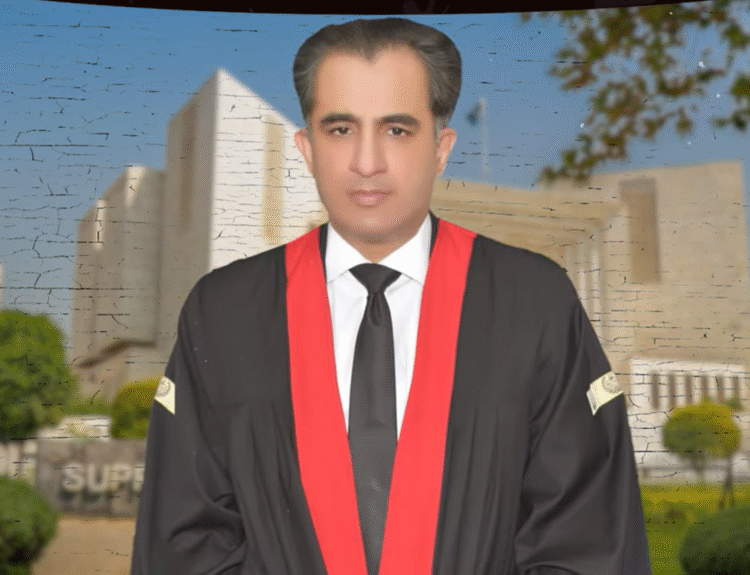By Khalid Hussain
How so very much like ExxonMobil to keep their re-entry in Pakistan hidden from prying eyes. They did this when they chose a day for formal entry in the country when the media was blinded by glamorous events at Kartarpur. The media missed big news as Kartarpur took over the media. All ignored the biggest news in 27 years.
It’s Exxon Mobil, the world’s largest international oil and gas company. And it is back in Pakistan after 27 years. This is bigger news than the US President visiting Pakistan.
It is resuming operations in Pakistan after being away for nearly three decades. The justifications cited for re-entry into Pakistan rests upon local market growth. Pakistan might boast of a big population of 200 million people—67 percent under the age of 30—in an emerging economy. But the reality of this emergence remains a sorry state of affairs has been unable to emerge in the last 71 years.
ExxonMobil is the world’s biggest energy company. It is in virtually every segment of the energy sector. From coal mining and electricity to the production, exploration, and marketing of oil and gas, they are at the very cutting edge.
ExxonMobil has a close relationship with the US Congress. It routinely lobbies successfully whether it’s to gain commercial access to federal lands or to roll back some Environmental Protection Agency initiatives not to their liking in the oil industry.
The fact Exxon was allowed to buy Mobil in 1999 says a lot about their clout in the United States of America in 1999. Lawmakers find laws allowing Exxon to purchase Mobil despite antitrust issues. The joint lobbying strength of Exxon and Mobil, not to mention the support of President Bill Clinton, the merger was approved and the US got its new No. 1 supplier of gasoline.
Exxon Mobil represents the combined former portions of John D. Rockefeller’s Standard Oil Trust he established in 1870. Let’s just say both had a lot of bad press. Like most people, corporations also do not like paying taxes. No big deal that in 1998 Mobil paid US$45 million in fines for underpaid royalties owed to the federal government for oil produced on public and Indian land in California, the Rocky Mountain States and in the Gulf of Mexico. But Exxon Mobil has also been found guilty of defrauding government of royalty payments from natural gas wells in state waters. When that verdict was overturned on technical grounds, a separate jury increased the award to $11.9 billion and in 2003. It is only fair to recall that the judge in the case later reduced the award back down to $3.5 billion.
The global corporation is after bigger fish in Pakistan. There have been reports of ExxonMobil Exploration and Production Pakistan BV having acquired a 25 percent interest in offshore drilling rights for which no clear details are yet available. It is understood that Pakistan Petroleum Limited (PPL) and the Oil and Gas Development Company Limited (OGDCL) the other shareholders along with one other private partner and the first exploration well is reportedly planned for January 2019. It is also going for Pakistan’s third LNG import terminal through the ExxonMobil LNG Market Development Inc. They have a Pakistani consortium partner “Energas” composed of Younus Brothers of the Lucky Cement fame, the Saphire Group, and the Halmore Power Company. ExxonMobil thus also desires to supply LNG to private consumers including the Independent Power Producers (IPPs) and the CNG industry.
ExxonMobil has already secured office space in for head office in Islamabad marking their return to Pakistan official. “With the permanent presence on an ExxonMobil head office in Pakistan, our other business ventures will explore the feasibility of the opportunities in the energy sector,” he said, adding that with success of these ventures, ExxonMobil could bring employment to hundreds of Pakistan’s technical training and worlds’ best industrial practices.
ExxonMobil cannot be moved by small sales objectives to meet the CPEC related demand. What does ExxonMobil want in Pakistan? Do they want to manage their offshore drilling operations better? Or are they seeking the first movers’ advantage into Pakistan? After all, once the dust settles between America and China and the war in Afghanistan is over, the whole region is going to be awash in oil and gas besides a whole lot of other mineral wealth. Pakistan is from where all the future markets are going to be explored. For whatever it’s worth, the tariff/trade war between China and America has locked them unto death. Coming on the heels of an evolving Brexit, the American giant entering Pakistan might just be here to show whose territory this is.
The company’s Chairwoman Emma Cochrane, LNG Market Development, will be visiting Pakistani along with Michael Deal, Vice President ExxonMobil Exploration Co, as well as other senior officials. In a major move, ExxonMobil acquired 25 percent shareholding in offshore drilling in Pakistan earlier this year. This was announced by the Foreign Minister of Pakistan Abdullah Hussain Haroon during the interim government. The Oil and Gas Development Company (OGDC), Pakistan Petroleum Limited (PPL) and Italian energy firm Eni had 33 percent stake each in offshore drilling in the country. When ExxonMobil acquired 25 percent shareholding, it reduced the share of all partner companies to 25 percent each.
ExxonMobil has already drilled up to 5,000 meters near the Pakistan-Iran border. Pakistan’s former minister for maritime affairs and foreign affairs Abdullah Hussain Haroon, revealed earlier this year that ExxonMobil was close to hitting huge oil reserves near the Pakistan-Iran border. Their decision to move is as much proof as anything that the oil deposits they have discovered are bigger than anticipated. Earlier reports suggest this would make Pakistan among the top 10 oil-producing countries, ahead of Kuwait in the sixth position.
Kuwait’s oil reserves make up 8.4 percent of the oil reserves in the world. Kuwait claims to hold about 101.50 billion barrels, including half of five billion barrels in the Saudi-Kuwaiti neutral zone which Kuwait shares with Saudi Arabia.
According to current estimates, 81.89 percent of the world’s proven oil reserves are located in OPEC member countries, with the bulk of OPEC oil reserves in the Middle East, amounting to 65.36 percent of the OPEC total, latest OPEC data shows. ExxonMobil is also already committed to set up a generation complex worth $10 billion in Pakistan. They also are planning to put up an LNG berth at Port Qasim, the second seaport in Karachi.
Pakistan currently meets only 15 percent of its domestic petroleum needs with crude oil production of around 22 million tons; the other 85 percent is met through imports. The country facing a huge current account deficit of up to $18 billion is spending a substantial amount of foreign exchange reserves on the import of oil. The import bill of Pakistan rose by to $12.928 billion in the July-May 2017-18 period of the last fiscal year.
The US Agency for International Development (USAID) estimated in 2011 that Pakistan had massive deposits of 10,159 trillion cubic feet of shale gas and 2.3 trillion barrels of shale oil. It was estimated Pakistan had 206 trillion cubic feet of shale gas in the lower Indus Basin, of which 51 trillion cubic feet were recoverable. These numbers were revised in June 2013 upwards to 586 trillion cubic feet, of which 105 trillion cubic feet were technically recoverable. Additionally, another 9.1 billion barrels of shale oil was also technically recoverable out of estimated deposits of 227 billion barrels.
It is not a secret at all. Neither does it take a genius to understand that Pakistan can not only pay off all its debt but can also ensure future affluence for all citizens. Companies like ExxonMobil and the contrived nature of their low profile posturing is known to have robbed countries elsewhere from such dreams. It is for the PTI to make sure the opportunity is not squandered.
Imran Khan’s government will do well by meeting their standards and safeguarding national interest by attracting them to make more investments. Pakistan must ensure it is providing a level playing field to all foreign investors and that they are interested in coming to Pakistan.
__________________________________________________________________________________________________________________
Khalid Hussain is Resident Editor of TLTP – You may contact Khalid Hussain at Resident.Editor@lawtoday.com.pk.pk
Categories
Uncategorized
Oil, Money, Debt and ExxonMobil




